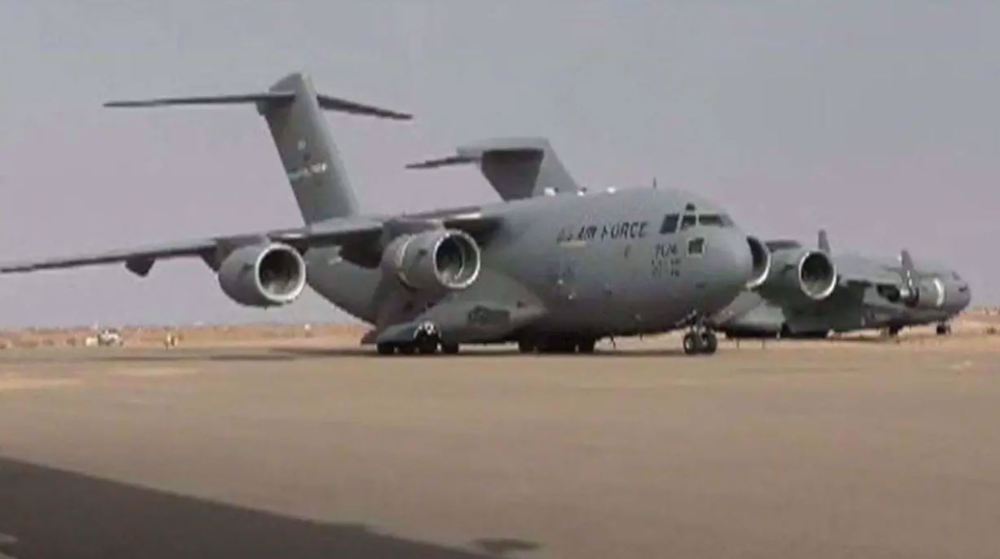French drone strike in Mali kills 19 civilians at wedding event
A French military drone strike in Mali has reportedly killed civilians attending a wedding event in a remote village amid France’s persisting military intervention in its former African colony under the pretext of fighting rising militancy in the impoverished -- though minerals-rich – nation.
The aerial strike in central Mali’s isolated Douentza area came at a moment of growing anti-French sentiment and armed resistance across the West African country in response to the eight-year military presence of the former colonial power.
An advocacy group for Fulani herders, known as Jeunesse Tabital Pulaaku, released a list on Thursday of 19 people it said were killed by the French airstrike, including the father of the groom, as well as seven others it said were injured in the attack while attending the wedding ceremony.
“Those who were killed were civilians,” said the group’s president, Hamadoun Dicko, as quoted in a Reuters report on Friday, noting: “Whether there were jihadists around at the moment of the raid or not, I don’t know.”
The report further cited a health worker, who spoke on condition of anonymity, as confirming on Tuesday that civilians had been “mistakenly hit in the strike.”
This is while on Thursday Mali’s Paris-sponsored government and the French military denied eye-witness accounts and other reports blaming the French air strike for the civilian fatalities in the area, claiming that only Muslim militants were targeted.
The French army further insisted that the targets were “Islamist fighters,” claiming that their identities were confirmed by its drones prior to the bloody attack and subsequent checks following the strike.
“No collateral damage, no sign of a festive gathering or a marriage,” the French army command declared in a statement, describing the targeted site as lightly wooded and claiming that “no women or children were observed” in the area.
According to the army statement, a group of nearly 40 men was monitored by the REAPER drone for more than an hour and a half before the strike, which was carried out over one kilometer from the nearest dwellings on the edge of the village of Bounti.
Repeating the French version of events, Mali’s Defense Ministry further cited surveillance images” to state, “the strike took place during a joint operation with French forces and killed about 30 militants.”
“There was no sign of a marriage, women or children,” it added in a statement.
France maintains a military force of more than 5,100 in Mali and other former colonies in West Africa in purported efforts to counter militants it claims are linked to the al-Qaeda and Daesh terrorist groups.
The military intervention, however, has come at a cost. Five French soldiers were killed in Mali in recent days and Malian citizens have protested France’s military presence in the streets as well as on social media platforms.
Two French soldiers were killed earlier this week as an explosion hit their armored vehicle during an “intelligence” gathering mission in Mali’s eastern Menaka region, bringing the number of French soldiers killed in the nation to fifty.
The attack came less than a week after three more French troops were also killed in its former colony by an improvised explosive device in the southern region of Hombori.
This is while France is still trying to maintain power with its significant military presence in Africa. It has thousands of soldiers spread in bases across the arid Sahel region of West Africa below the Sahara, purportedly waging “counter-insurgency” operations.
Violence, however, has steadily worsened in the region with militant groups using northern Mali to launch attacks on neighboring countries.
Last January, hundreds of people took to the streets in the capital of Mali to protest the presence of French troops in the Sahel region.
Protesters gathered in a square in the center of the capital Bamako, where they burned the French flag and carried banners reading slogans such as "Down with France.”
The protest came ahead of a summit in France on the country’s military interventions in Africa.
The latest French killing of Malian civilians came as Paris faces tough choices about how to deal with its purported moves to counter extremists in Mali and other African nations without getting bogged down in a potentially un-winnable war, according to an AFP report, which pointed to the growing number of French troops killed since it launched a campaign to rid northern Mali of militants in January 2013.
It further cited French military sources as saying that President Emmanuel Macron wishes to go further in reducing the number of French troops in the Sahel region before the country’s next presidential election in April / May 2022.
“So far, the French have not really questioned the role of France in the Sahel. But you have to be very careful. Public opinion can change very quickly,” said a government source as quoted in the report.
A sign that the Sahel mission could become a national political football, some opposition politicians in France have already started to question the wisdom of staying the course.
“War in Mali: for how long?” questioned the country’s far-left party, France Unbowed, earlier in the week.
VIDEO | Paris march in support of Palestine women
VIDEO | ICC issues arrest warrants for Israeli prime minister, ousted regime war minister
120 Palestinians perish as Israeli war machine keeps ravaging Gaza
VIDEO | Struggles of Palestinian women amidst war, displacement
VIDEO | Hezbollah rains attack drones down on elite Israeli brigade
VIDEO | US biased mediation fails
Leader: All captains of criminal, Zionist, terrorist gang must be prosecuted
Iran further raises its oil prices for Chinese buyers: Report
















 This makes it easy to access the Press TV website
This makes it easy to access the Press TV website